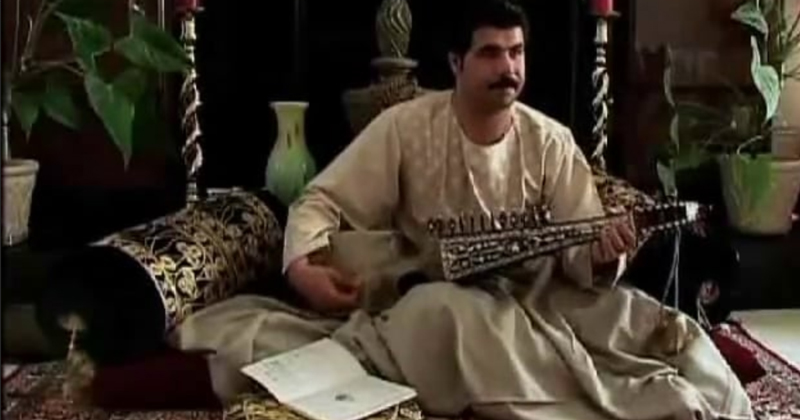
From Kabul to California, Homayoun Sakhi is admired as the outstanding Afghan rubâb player of his generation. Born in Kabul into one of Afghanistan’s leading musical families, he studied rubâb—a double-chambered lute and the national instrument of Afghanistan—with his father, Ghulam Sakhi, from the age of ten in the traditional form of apprenticeship known as ustâd-shâgird (Persian for “master-apprentice”).
Sakhi and his family fled Afghanistan in 1992 for Peshawar, Pakistan, which became a place of refuge for Afghans from the political chaos and violence that followed the 1979 Soviet invasion. In 2001, Sakhi emigrated to Fremont, California—which claims the largest concentration of Afghans in the United States—and brought with him the sophisticated and original rubâb style that he developed.
He quickly established himself as a leader of the local musical community in Fremont, where he opened a school to teach Afghan music to children, recorded popular Afghan songs, and became a sought-after performer. He was recorded for three of the GRAMMY-nominated Smithsonian Folkways albums in the Music of Central Asia series, including as a featured soloist.


